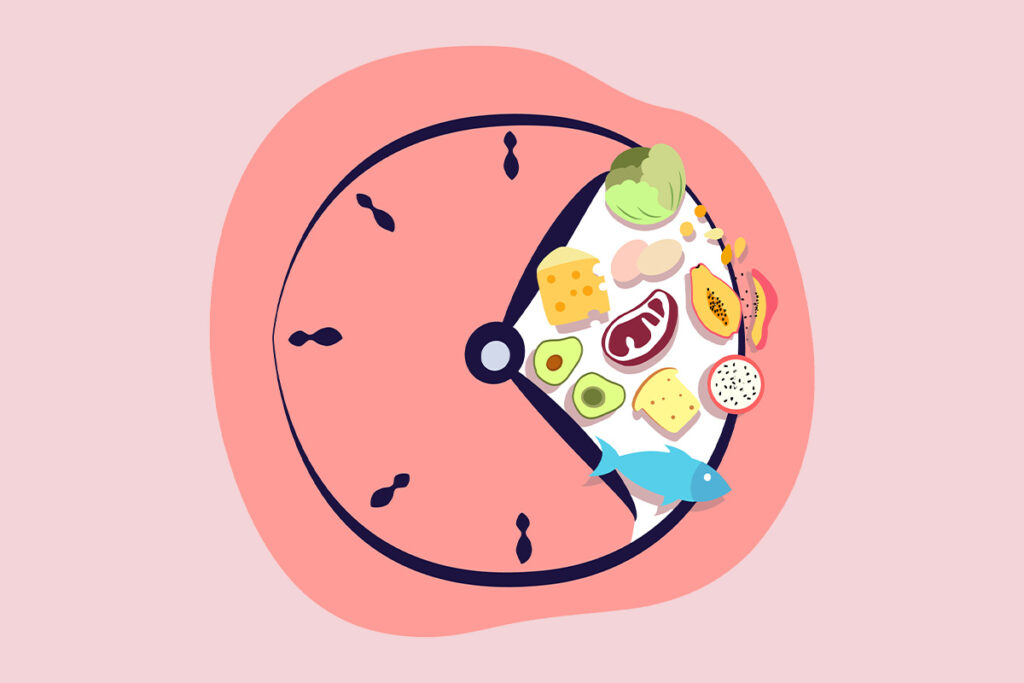DOES FAST WORK?
First of all, the question that must be asked is: what fast? There are different methods of practicing fasting, each with a different effect on the body. Fasting every other day, 5: 2, fast-mimicking, time-restricted feeding, etc. Let’s focus on time-restricted feeding. To understand this practice, we need to understand the circadian cycle first. Our body’s cells have an internal 24-hour clock. This clock determines what kind of action the cells will have, according to the time of day. Although the circadian cycle is somewhat independent in Organs peripheral organs, there is still a hierarchy in the organism: this is the case of the suprachiasmatic nucleus, a hypothalamic region responsible for orchestrating part of the body circadian cycle. It is very much associated with the production of melatonin, for example. And melatonin, today we know, is a molecule with multiple functions, the main one being sleep regulation.
It turns out that for this whole complex system to work as planned, it depends on the outside light. Our retina has a prominent role, emitting biochemical signals from photoreception. The circadian cycle is programmed to work according to the Earth’s rhythm: 12 hours of exposure to light, gradually decreasing until it reaches darkness for the rest of hours. The problem is that today we are exposed to light for almost 24 hours! If it is not a lamp, it is television, computer or cell phone light until dawn. This causes the brain to interpret that it is not yet “at night” in the external environment, which causes less melatonin production.

Here comes the problems of sleep, appetite, weight, etc. And why did I talk about all this? Because food also contributes both to homeostasis and to the breakdown of the circadian cycle. Like sleep, the body is programmed to eat more during the day than during the night. We naturally have a balance between a fed state (anabolic, a builder) and a fast state (catabolic and repair). People who have an altered circadian cycle usually have, as a cause or consequence, changes in time, quantity and quality of food. The central biological clock is more regulated by light / darkness, while peripheral clocks are more regulated by food. The purpose of time-restricted feeding, therefore, is to readjust the circadian cycle to promote quality of life. It is a fasting modality in which food consumption is allowed only in one part of the day (usually a period of 12 hours, from 6 am to 6 pm).
The prerogative is that a 10 to 12 hour overnight fast would be able to reset the biological clock and optimize endogenous repair pathways. Most of the studies with time-restricted feeding were done in animals, which were very important to understand biochemical mechanisms, for example. But even in humans there are few studies, the ones that are available are very promising: there is adequate body weight, reduced glucose, plasma triglycerides and LDL and increased HDL. So answering the initial question: yes, it works. But keep in mind the different types of fasting and that we treat people, not a laboratory exam. Having evidence of benefit does not mean applying for everyone!
There are people who do not deal well with restriction (it generates compulsion), others who cannot adapt to hours without eating…. etc. Evaluate the cost x benefit and judge, together with your patient, if this will be the best strategy for him


